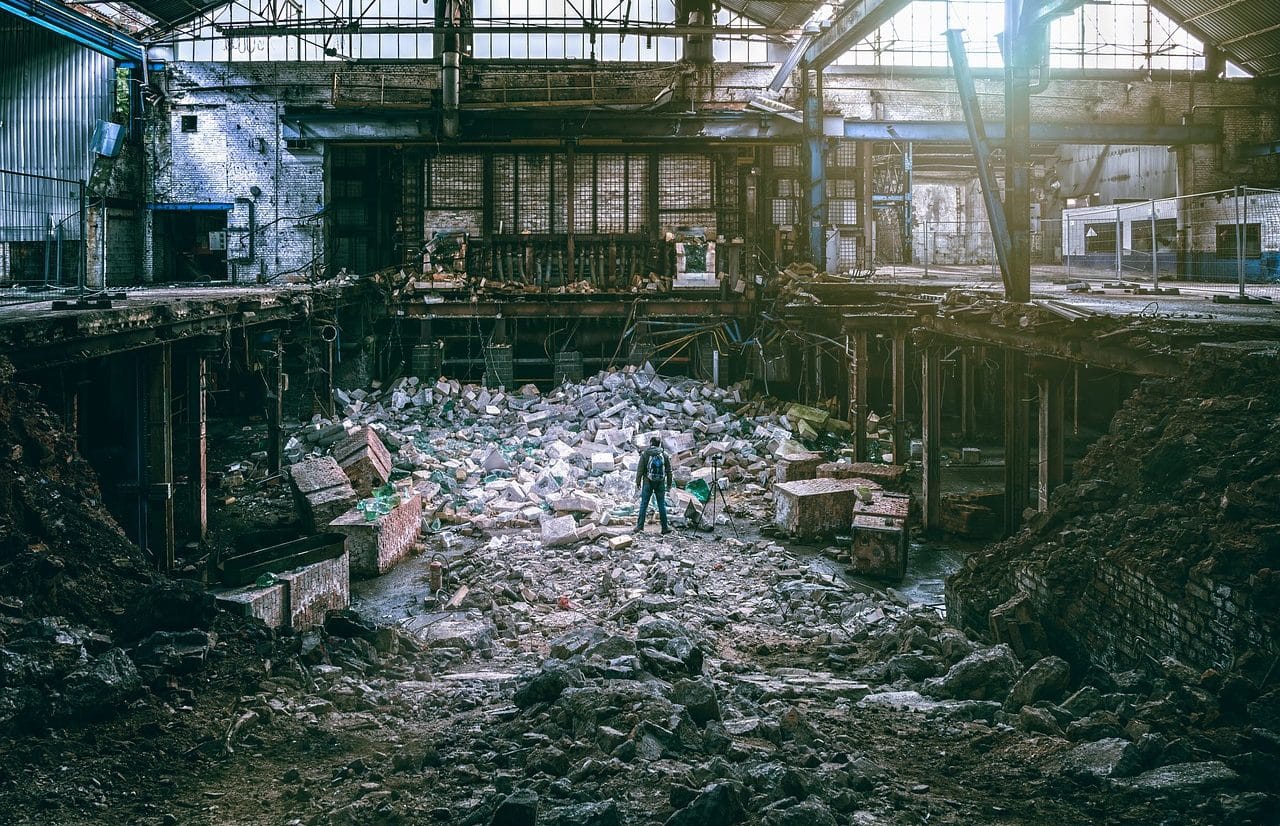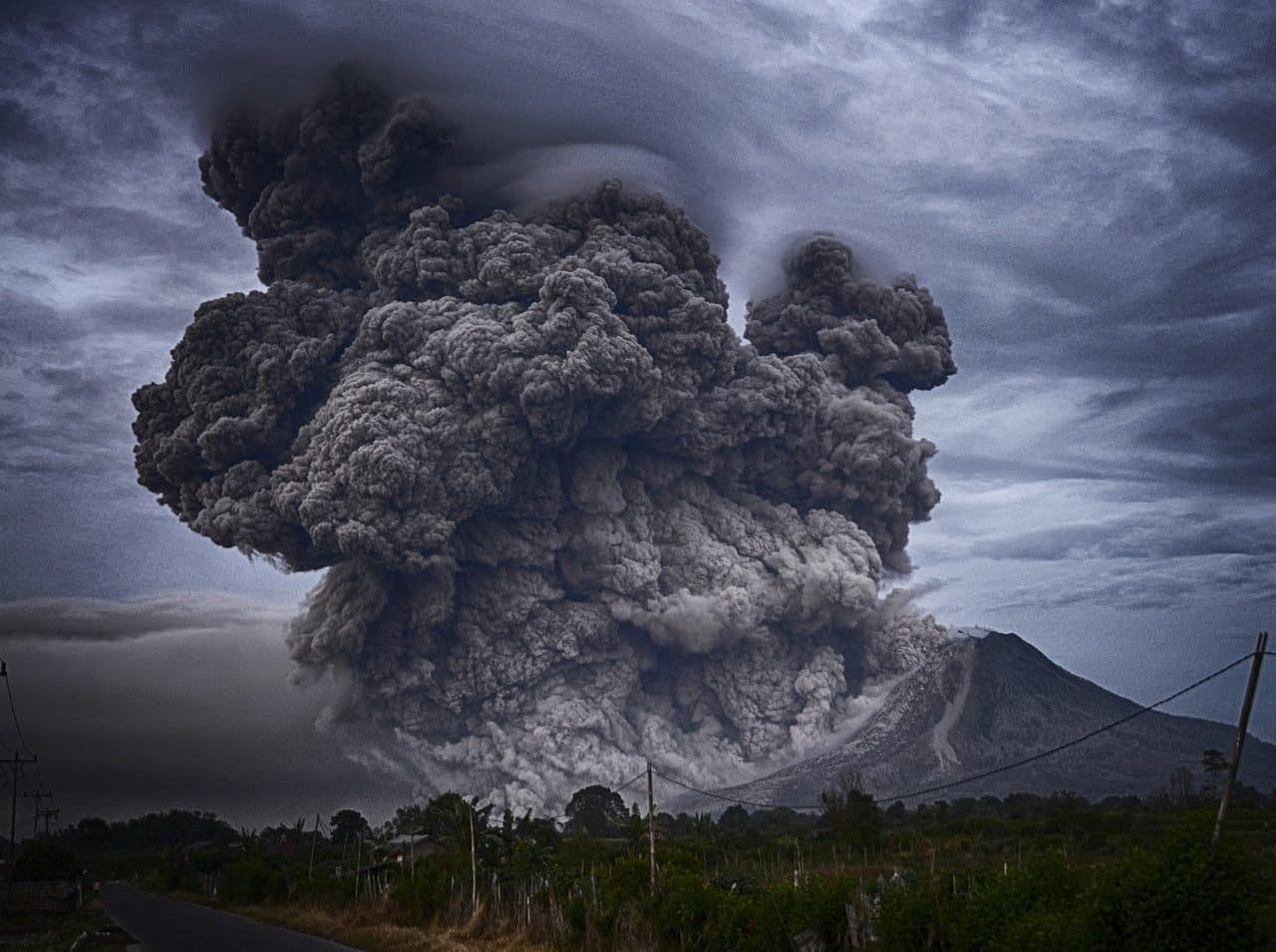
Destruction involves the decomposition, disintegration or elimination of a thing.
Destruction is the process of decomposition, disintegration or elimination of something, whether physical, material or abstract, to the point that it loses its form, functionality or existence.
Types of destruction
Destruction can manifest itself in various ways, including:
- physics : involves the decomposition of tangible objects, such as buildings, vehicles, natural structures, etc. It can be caused by natural phenomena such as an earthquake, flood , or fire , as well as by human actions such as war, deliberate demolition , or wear and tear over time;
- Environmental : refers to the damage or deterioration of ecosystems and the environment. It can be caused by pollution, deforestation , climate change, overexploitation of natural resources, among other factors;
- economic : implies the loss of value or productive capacity of goods, services, infrastructure, etc. It can occur due to economic crises, trade wars, uncontrolled inflation, among other factors;
- emotional or psychological : refers to the damage or trauma to people's mental and emotional well-being, caused by traumatic events, abuse, interpersonal conflicts, among others.
In short, destruction can manifest itself in multiple ways and can be caused by a variety of natural or human factors.
natural destruction
In ancient times, various civilizations experienced major natural disasters that had a significant impact on their development and, in some cases, their eventual demise. These included earthquakes, volcanic eruptions, tsunamis , storms, floods and droughts.
Let's look at some well-known examples of natural destruction throughout history:
- Mount Vesuvius eruption (79 AD) – One of the most famous volcanic eruptions in ancient times, it occurred in 79 AD in the Campania region of Italy. The city of Pompeii and its inhabitants were buried by ash and lava , preserving its ruins and providing valuable information about Roman life at the time;
- Lisbon earthquake (1755) – occurred on November 1, 1755 and primarily affected Lisbon, Portugal, as well as other regions of the Iberian Peninsula and North Africa. The combination of the seismic tremors and subsequent tsunami caused massive devastation and the loss of tens of thousands of lives. It also had a significant impact on the philosophical and theological thinking of the time, questioning traditional conceptions of divine goodness and human suffering;
- Yellow River floods in China – Caused by flooding of the Yellow River due to seasonal rains and thawing mountains, they have caused the extinction of entire cities, the loss of crops, and the deaths of millions of people. Despite their impact, these catastrophes have also played an important role in the formation of cultural identity and the adaptation of Chinese society;
- Droughts in Ancient Mesopotamia : Ancient Mesopotamia, known as the cradle of civilization, experienced periodic droughts that had a significant impact on the farming communities in the region. Water shortages and lack of adequate rainfall led to declining crops, famine, and, in some cases, the collapse of Mesopotamian city-states. They may also have contributed to the migration and expansion of other civilizations in the region.
These are just a few examples of how natural disasters impacted ancient civilizations, evidencing humanity's vulnerability to the vagaries of nature and the importance of resilience and adaptation in human history.

Just like an avalanche, hurricane, or tornado, a volcano eruption can cause destruction.
human destruction
Throughout history, the destruction caused by humanity has been a constant, manifesting itself through wars, invasions, looting and the fall of great empires. These events have left a deep mark on history, altering the course of civilizations and shaping the world as we know it.
From ancient times to the modern era, wars have been a major cause of human destruction. The conquests of Alexander the Great in the ancient world, the military campaigns of the Roman Empire, the barbarian invasions of Europe, the Crusades, the Napoleonic Wars, and the two world wars of the 20th century are just a few examples of conflicts that caused an unprecedented degree of annihilation. precedents, desolation , loss of life and geopolitical change.
Throughout history, powerful empires have invaded and plundered entire cities and regions, leaving a trail of destruction in their wake . The Mongol invasions in Asia and Europe, the Viking raids in Western Europe, the conquests of Muslim armies in the Middle East and North Africa, as well as the invasions of the Persian and Ottoman empires, are examples of how military conquest resulted in the destruction of civilizations and cultures.
Throughout history, numerous empires have arisen, reaching their peak before eventually collapsing. The fall of the Western Roman Empire in 476 AD, the decline of the Han dynasty in China in the 3rd century AD, the fall of the Mayan Empire in Mesoamerica in the 9th century AD, and the collapse of the Byzantine Empire in 1453 AD are examples of how empires have experienced the collapse of their political, economic and social structures due to a combination of internal and external factors, such as corruption, foreign invasion, cultural decay and pressure from neighboring peoples.

The attacks typical of wars, such as bombings, result in genocides and massacres.
Psychological destruction
Psychological destruction is a complex phenomenon that can manifest itself in various ways, including trauma and abuse, social destructuring, and loss of values. These aspects can have a profound impact on the mental and emotional well-being of individuals and communities, leaving lasting consequences.
Trauma and abuse can occur in different contexts, such as at home, school, work, institutions or during situations of conflict and war. These experiences may include physical, emotional or sexual abuse, neglect, domestic violence, harassment and bullying , among others. The psychological effects of such experiences can be devastating, causing post-traumatic stress disorders, depression, anxiety, eating disorders, addictions, and difficulties in interpersonal relationships.
Social destructuring is the collapse or deterioration of social structures, such as the family, community, school or society as a whole. This can occur due to factors such as poverty, unemployment, discrimination, migration, social violence, armed conflicts, among others. When social structures disintegrate, people may experience feelings of alienation, loneliness, lack of belonging, and lack of social support, which can contribute to mental and emotional health problems.
The loss of ethical and moral values in a society can have devastating consequences on the psychological well-being of its members. This can manifest itself in corruption, extreme individualism, lack of empathy, violence, intolerance and loss of trust in institutions and others. When the values that underpin social cohesion and a sense of community are eroded, people can experience hopelessness, cynicism and distrust in the future, which can contribute to mental health problems such as depression and anxiety.
